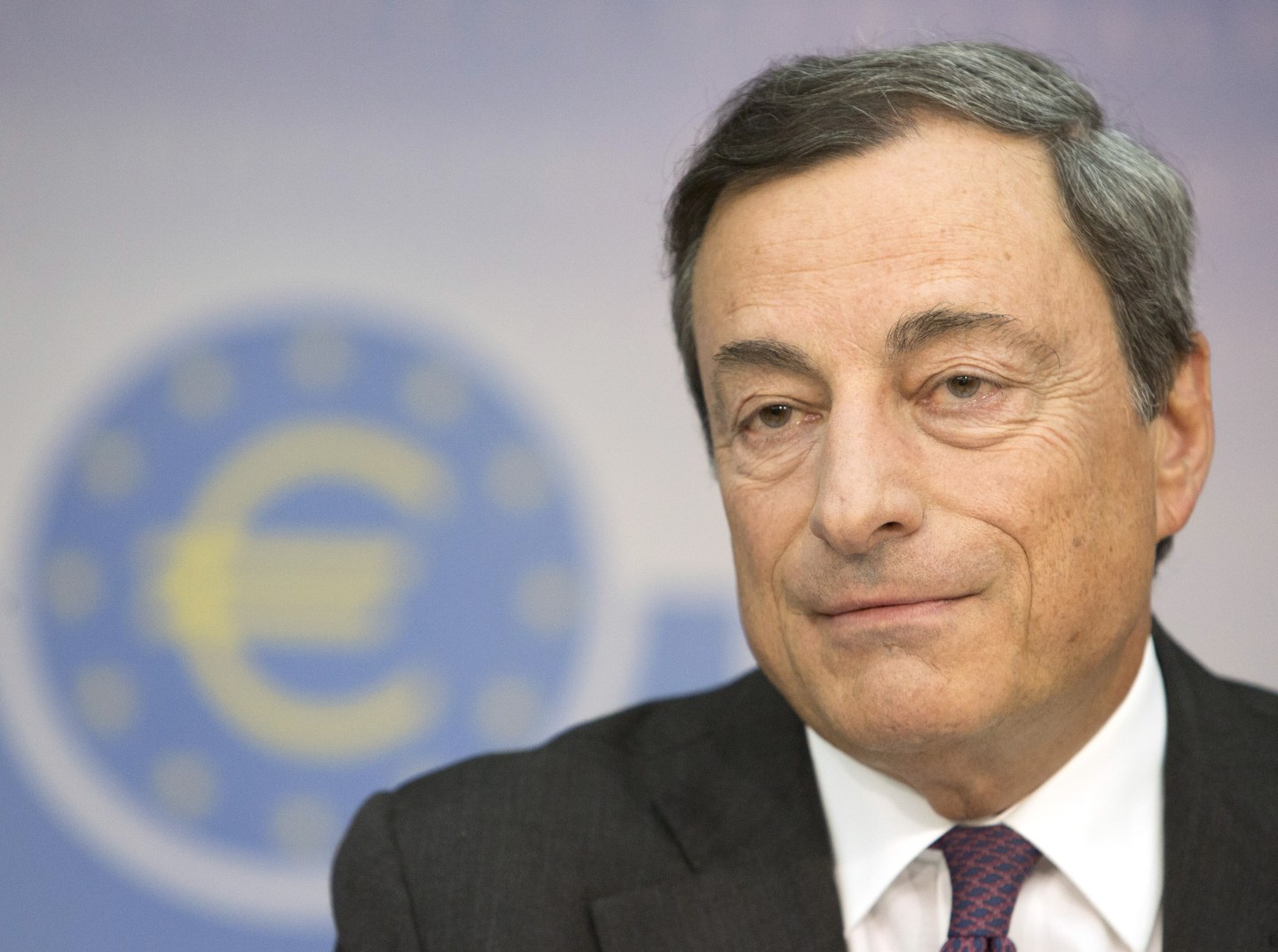There had been reports of a German-led rebellion against the ultra-loose policy of the European Central Bank, but its president Mario Draghi was having none of it Thursday.
True, the ECB announced no new measures to step up the fight against ultra-low inflation and economic stagnation, suggesting that the ‘doves’ on the ECB’s council who are alarmed at seeing prices collapse in countries such as Spain and Greece chose not to push their case at the regular monthly meeting.
In the absence of new action, markets were forced to concentrate on Draghi’s words–and decided that the most important ones were his claim that the council was “unanimous” in being ready to take further “unconventional” measures to stop deflation if necessary.
They may well need to: the European Commission earlier this week said it expected inflation to run at 0.8% next year and 1.5% in 2016, well below the ECB’s target of just under 2%. At the same time, it slashed its growth forecasts for the Eurozone for the next two years.
Things have been looking up recently for the ECB as the euro has weakened sharply against the dollar, cheapening by nearly 8% since March. In a normal world, that would significantly increase demand for Eurozone exports, but the problem is that the dollar has been rising against virtually every other country too.
A particular problem is that Japan, whose industry competes fiercely with the Eurozone’s in sectors such as autos and engineering, is weakening the yen even faster than the ECB can weaken the euro with its own version of “quantitative easing.”
The euro fell to a new two-year low against the dollar in the wake of Draghi’s comments, as markets chose to believe that he can deliver further monetary easing. By late trading in Europe it was at $1.2425, down nearly a cent from its level before the press conference.
Despite the increasing economic gloom, Reuters had reported earlier in the week that nearly half of the Eurozone’s top policymakers were still opposed to stepping up the ECB’s injection of money into the system by buying bonds from banks.
Reuters said the dissenters, led by German central bank chief Jens Weidmann, were unhappy about Draghi committing to expand the ECB’s balance sheet back to where it was at the height of market concerns about the Eurozone breaking up.
Draghi squashed that notion within a minute of starting his traditional opening statement, indicating no scaling-down of the bond buys and a new program of cheap long-term loans (known as TLTROs).
“These asset purchases will have a sizeable impact on our balance sheet, which is expected to move towards the dimensions it had at the beginning of 2012,” he said.
That implies the ECB will inject up to €1 trillion to refloat the Eurozone economy: its balance sheet peaked at a little over €3 trillion in 2012 but has since shrunk by €1 trillion, as banks have reduced their dependence on the central bank and returned to funding themselves via the markets.
In a sideswipe at the (again, mainly German) criticism that his plan to buy asset-backed securities will lead the ECB to buy up bucketfuls of toxic assets, Draghi cited a report by credit rating agency Fitch playing down the risk, and observed tartly that “where evidence meets faith, it doesn’t stand a chance.”






